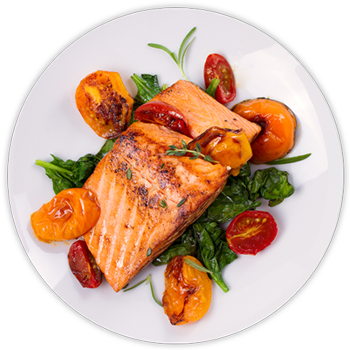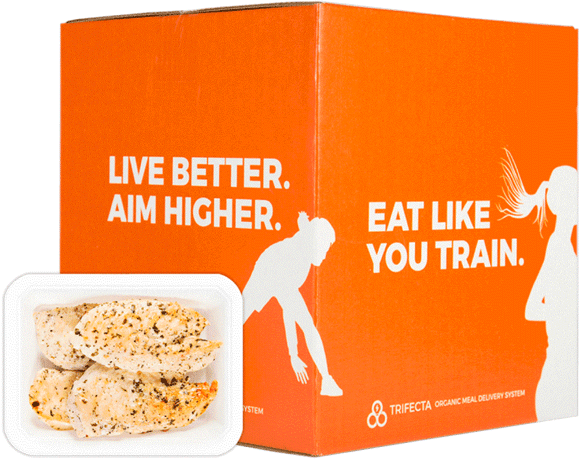In just a few minutes you can calculate the exact amount of protein you should be eating. Whether you are looking to lose weight or build muscle, learning your daily protein needs is crucial to getting results!
Enter your details in the form above to calculate your exact protein demands based on your unique factors.
To get started, select your gender and input age, then tell us your height and current weight.
From there, you’ll input your workout routine - starting with resistance training. Be sure to choose the appropriate activity level: light activity, moderate activity, heavy activity, or athlete. Followed by the number of days your strength training each week and the average time for each training session.
Next, estimate your weekly cardio and conditioning routine. Repeat the same steps, identifying the average number of days each week, timing, and intensity level.
The last step is to select your nutrition goal: lose weight, gain muscle, or maintain weight.
From there, our proprietary formula will calculate your average daily protein requirements using a combination of your personal info, exercise routine, and selected fitness goal.
Then check your email inbox for immediate results and get ready to start tracking your daily protein intake.
The commonly recommended range of protein for both men and women is roughly 0.8 to 1.0 grams per pound of weight (in kilograms) or 0.36 to 0.45 grams per pound of body weight. However, this is the minimum amount most people need, and the optimum intake can vary widely from one individual to the next depending on certain factors.
Your exact protein needs are most closely related to your current muscle mass - the more muscle you have, the more protein you require to maintain it. And the more you use your muscle - aka the more physically active you are - the more protein you need.
Other factors that can increase your needs include a goal of weight loss or muscle gain. To put on muscle, you need protein to build it. When cutting calories to shed pounds, you will lose a combination of fat and muscle weight, but your goal should be to lose more fat than muscle. A higher-protein diet can help protect your lean tissue and promote more fat loss overall.
For these reasons, our protein calculator uses a higher protein suggestion that is fully customized to your weight, fitness level, nutrition goal, and current workout routine.
Learn more about how to tell exactly how much protein you should strive for.
Protein is not just important for building and repairing lean tissue (like muscle), its also essential for numerous bodily functions. Basically every single cell in the human body is made up of proteins, including your DNA, red blood cells, and bones - all of which are in a constant state of breaking down and rebuilding, requiring protein and amino acids.
If you don’t eat enough protein through food, your body has to tap into your stores to maintain normal protein turnover - and this means you could potentially lose muscle.

A high protein diet is associated with numerous benefits including decreased appetite, reduced cravings, and better body composition (1,2,3). Moreover, protein is the least likely of all the macros to be stored as body fat when you overeat (4).
This is exactly why high protein diets have become so popular to support weight loss - with most plans recommending an intake of around 30% to 40% of your total calories.
Regardless of your goals, making sure you hit your daily calorie needs and protein intake is two things you can do every day to ensure you get incredible results.
Learn more about how to get your ideal macros for weight loss and muscle gain.
You may have heard that eating too much protein can lead to kidney damage. This stems from the understanding that because your kidneys play an important role in filtering waste, and digesting excess protein results in more metabolic wastes you would need to filter. However, eating high amounts of protein doesn't necessarily mean you are putting a strain on your kidneys unless you suffer from kidney disease.
For those with diagnosed kidney disease, consuming a high protein diet might be harmful (5,6). But for healthy individuals without kidney disease - the additional work needed by your kidneys from high protein diets is thought to be well within its normal capabilities (7,8,9,10).
The easiest way to tell if you are getting plenty of protein on the reg is to track your daily macro intake using a nutrition tracking app.
The Trifecta app allows you to stay on top of your goals with full macro tracking in the palm of your hand. You can search a database of over 6 million food items, create custom high protein recipes, and view your average weekly protein intake to make sure you are driving real results.
Download the Trifecta app to get started!
Many of the best protein sources tend to come from animal products, as they are the most protein-dense foods we know of (provide high amounts of protein per calorie). This includes meat, fish, and dairy products.
Of course, it is entirely possible to get plenty of protein from other foods, including plants! Popular plant-based proteins include beans, lentils, whole grains, nuts, and seeds, along with meat alternatives like tofu and beyond meat. However, many plant-based proteins also tend to be a source of fat or carbohydrates in addition to protein, so it takes a bit more juggling to perfect your vegan macros.
You can also consider protein supplements if you are having a hard time getting enough from food. Whey protein powder is the most common, but plant-based protein powders are also available to support your intake.
You can easily add protein powders to a protein shake or common foods like oatmeal, yogurt, and baked goods to get an extra boost.
Crush your goals and dial in your nutrition with ready-made, high protein meals shipped straight to your door. Made with the highest quality protein available, including grass-fed meats and sustainably-caught seafood that are humanely raised.
Prepared with craftsmanship in mind, using clean ingredients that are delivered fresh.
